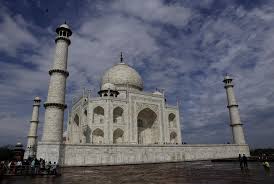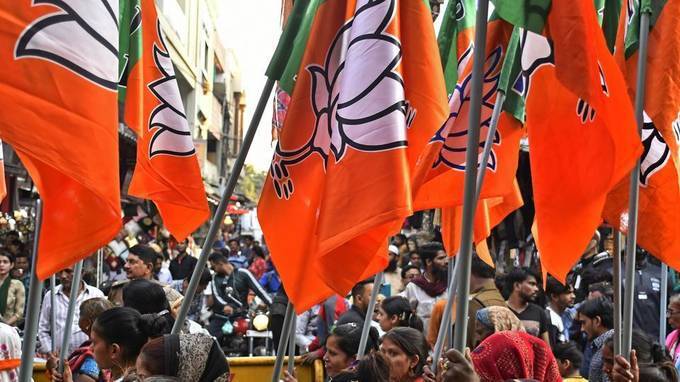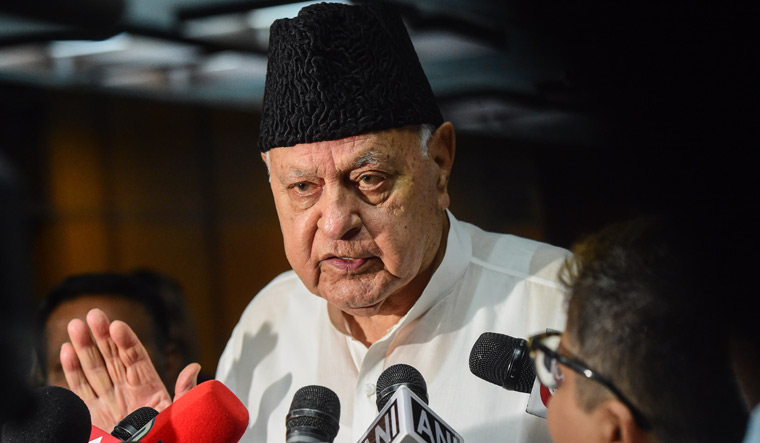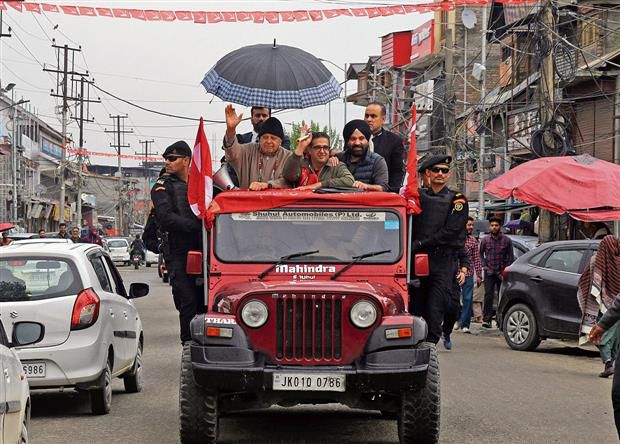Uttar Pradesh BJP MLA Som Sangeet, who had described Taj Mahal as a “blot on Indian culture,” is unaware of the consequences his statement can have in Jammu and Kashmir. The state is already in throes of keen contest on the events and currents of history, which is at the heart of perpetuation of the blood-ridden conflict for the past three decades. And, its end is not in sight in the foreseeable future.
Kashmiri Muslims are becoming more possessive of the names and monuments in the Valley and other parts of the state. They have co-opted Munhall gardens- Nishat, Shalimar, and monuments like Pari Mahal in Srinagar, as their own. These magnificent gardens and historic structures of the Mughal era have been packaged in the original Kashmir package, though these were constructed way down centuries since Kashmir was known to the world over.
Questions are being raised as to what would be the status of Red Fort, Qutub Minar and other historical monuments which have been listed as iconic historical monuments of “Incredible India.”
But the question is what if the history of Kashmir is re-written? Already a series of crude and intense attempts are being made to demonise Hindus and their rule. These attempts have gone to extent of questioning the credibility of Kalhana’s Rajtaringini — the most authentic classic about the origin of Kashmir in the pre-historic times. The rest of the history is being superimposed by the new versions, which seek to tell that Kashmiri Pandits, Hindus and Sikhs were brutal, while Afghans and Mughals were benevolent.
The impetuous people like Som Sangeet and his statements about the history can make things worse in Kashmir, where much more than renaming or demolition of the monuments is at stake. The country is fighting a battle here in the Valley. On the other hand, there is a confrontation between military and Pakistan-sponsored local militancy. The idea of the country is being resisted all the time and subversion is prospering under the deliberately shut eyes of the corrupt and incompetent system in Delhi and Srinagar.
In the recent times, Kashmiri Muslims, who have protested over the happenings in Palestine and other parts of the Islamic world, have started making a common cause among them. The Kashmiri people had staged feeble protests in the wake of the Babri mosque demolition in December 1992, but they are now more concerned over and connected with Ikhlaq Khan and Pehlu Khan lynching and the way the Hindutuva forces are driving the narrative of cow vigilantism. It all started almost a year-and-a-half after Gujarat riots of 2002.
Separatist leader Syed Ali Shah Geelani after parting ways with the original Hurriyat Conference formed his faction of the separatist conglomerate in September 2003 and spoke about “Gujarat riots” at his maiden rally in Baramulla of north Kashmir. That was the time, Geelani whose Pakistani credentials are unquestionable, tried and succeeded in putting Kashmiri and Indian Muslims on the same page. So, anything happening to Muslims in the country is having serious repercussions in this part of India as well.
The stupid statements coming from the ruling party lawmakers in Uttar Pradesh and elsewhere can sharpen the conflict and polarise it to such an extent that it could touch the line of irreversibility. The history of Kashmir is undergoing change at a terrible speed with an aim to redefine the geographical boundaries from where the idea of India has been shut out completely.
Blot on Taj Mahal can cast shadow on Kashmir






